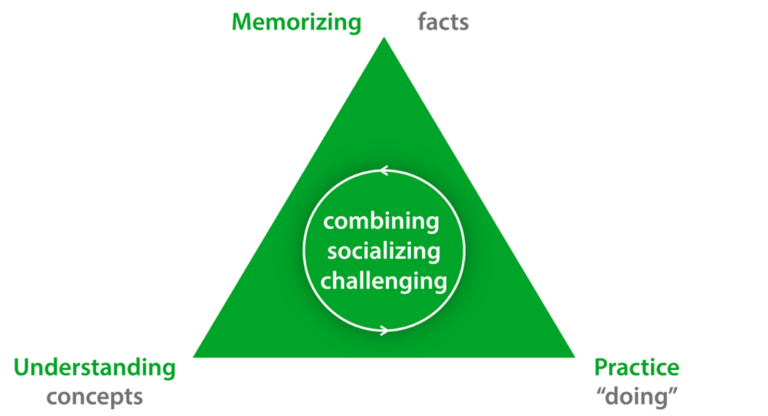INCOSE SEP Exam Preparation Course
Accélérez sur votre chemin vers la certification INCOSE, dans les meilleurs conditions.
- 5 Jours
- Reprenez le cours gratuitement si vous ne réussissez pas à votre premier examen!
Commencez aujourd'hui
Register your interest.
Make an Enquiry
Ask us anything or tell us more about your training needs e.g. what are the training outcomes you are seeking?
- Vue d’ensemble
- Aperçu du cours
Votre iIntervenant
Ce cours de préparation proposé virtuellement, ou sur place pour les entreprises, pour l’examen “INCOSE Systems Engineering Professional“ (SEP), combine des présentations, des discussions en groupe, des exercices pratiques et un examen simulé. Ainsi, nous vous assurons un haut niveau de connaissances en vue de votre maîtrise et de votre certification SEP. L’intervenant chargé de la formation est un expert en ingénierie système de réputation mondiale, qualifié CSEP, et très expérimenté dans toutes les procédures de certification SEP. La formation est orientée vers l’interaction, les aspects sociaux de l’étude et l’intégration des connaissances préalables du participant. L’usage des techniques de pointe et des principes de la formation pour adultes permet aux participants d’assimiler l’information nécessaire le plus rapidement possible et de s’en souvenir. Le rôle et les avantages de l’ingénierie système pour l’entreprise du participant sont expliqués clairement, en utilisant les termes (reconnus et cohérents par rapport aux standards internationaux) contenus dans le “INCOSE Systems Engineering Handbook“, le manuel principal de la formation. Une fois la formation achevée, les participants auront les compétences pour utiliser ce manuel comme référence et comme guide, pas seulement pour préparer l’examen INCOSE SEP mais aussi pour leurs propres développements des systèmes futurs.
Mode de Livraison du Cours
Sur demande, nous pourrons offrir cette formation ISEP en français. Les présentations et la plupart des exercices seront en anglais, étant donné que le manuel principal (le Systems Engineering Handbook d’INCOSE) et l’examen lui-même sont en anglais. Mais les explications et les discussions autour des thèmes seront en français. Etant donné l’importance de maîtriser les termes exacts en préparant l’examen, nous conseillons cette façon de faire en utilisant les deux langues.
Votre Intervenant
Paul Davies est un ingénieur système depuis 40 ans, maintenant semi-retraité. Mathématicien, titulaire d’un master de la Cambridge University à l’origine, il s’est orienté vers l’ingénierie système via la modélisation des performances des systèmes complexes, puis la gestion de l’intégration et test, la gestion des exigences et il est finalement devenu responsable de l’ingénierie totale d’une gamme de produits. Après six ans de travail dans l’industrie nucléaire, trente ans chez Thales (en Angleterre et en France) en systèmes de défenses et deux ans en systèmes ferroviaires, il possède une grande expérience. Il a également été professeur invité à la Loughborough University, une des premières Grandes Ecoles en Ingénierie Système du Royaume Uni et, en même temps, membre du Conseil d’administration de l’ISAE à Toulouse, représentant le Royaume Uni dans un GT chargé de lancer un master international entre sept pays. Entre 2002 et 2003 il était Président du Chapitre Britannique de l’INCOSE, et il continue de gagner des prix pour ses présentations lors des conférences de l’INCOSE.
1.1 What is SE?
1.2 Why is SE important?
1.3 Systems Concepts
1.4 Systems Engineering Foundations
1.5 Systems Science and Systems Thinking
2.1 Life Cycle Terms and Concepts
2.2 Life Cycle Approaches
2.3 System Life Cycle Processes
3.1 Quality Characteristics and Approaches
3.2 Systems Engineering Analyses and Methods
4.1 Tailoring Considerations
4.2 SE Methodology/Approach Considerations
4.3 System Types Considerations
4.4 Application of Systems Engineering for Specific Product Sector or Domain Application
5.1 Systems Engineering Competencies
5.2 Diversity, Equity and Inclusion
5.3 Systems Engineering Relationships to Other Disciplines
5.4 Digital Engineering
5.5 Systems Engineering Transformation
5.6 Future of SE
6.1 Case 1: Radiation Therapy – the Therac-25
6.2 Case 2: Joining Two Countries – the Øresund Bridge
6.3 Case 3: Cybersecurity Considerations in Systems Engineering – the Stuxnet Attack on a Cyber-Physical System
6.4 Case 4: Design for Maintainability – Incubators
6.5 Case 5: Artificial Intelligence in Systems Engineering – Autonomous Vehicles
6.6 Other Case Studies
- Daily Quiz Questions
- Sharing of Personal Project Experience
- What is a System?
- Definition of Systems of Systems
- Enabling Systems
- Definition of Systems Engineering
- Use and Value of Systems Engineering
- Generic Life Cycle
- Applying the Handbook to Case Studies
- Linking IPO Diagrams to Each Other
- Verification vs. Validation
- Concept of Operations vs. Operational Concept
- Technical Processes
- Technical Management Processes
- Comparison of Project and Organizational Processes
- Measurement Process
- Pulling It All Together – System Perspective
- Agreement Processes
- Organizational Project-Enabling Processes
- Knowledge Management Process
- Tailoring Process
- Quality Characteristics and Approaches
- Comprehension Style Questions on Quality Characteristics and Approaches
- Systems Engineering Analyses and Methods Part One
- Systems Engineering Analyses and Methods Part Two
- Systems States and Modes
- Uncertainty and Cognitive Bias
- SE Principles and Heuristics
- Technical Reviews and Audits
- Traceability
- Patterns
- Digital Engineering

Make an Enquiry
Ask us anything or tell us more about your training needs e.g. what are the training outcomes you are seeking?
Featured Course Reviews

An excellent course with a great mix of presentation and interaction. The presenter never had us doing the same thing long enough for us to lose focus or interest.
BAE Systems, James Morton, United Kingdom

Thank you for offering such a comprehensive course. I found the material really useful and definitely feel that I am in a better position to take the test after attending the course.
Booz Allen Hamilton, Participant, United States of America

CTI’s ISEP exam preparation course has led to over 30 of our engineers becoming INCOSE ASEPs, leading to CSEPs and also ESEP
BAE Systems, Participant, United Kingdom

The broad overview and the insight on the PM side was good. I also enjoyed the team management module together with the acknowledgement of the realism required in project planning.
Carl Zeiss Optronics Pty Ltd, Participant, South Africa

Good balance of presentation and workbook/workshop activities. I liked the training style a lot.
CTI Live-Online, Participant, Australia

I have learned the concepts and a lot of processes and methodologies. They will be very useful for me to do a good job.
AVIC, Participant, China
